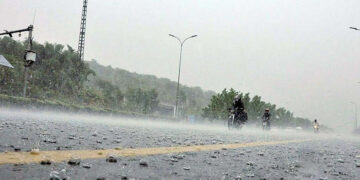![]() Follow Us on Google News
Follow Us on Google News
The recent surge in militant activities, marked by the targeted assassination of a political candidate and a bomb attack on an election rally, has sparked profound concerns about the security landscape in the lead-up to the polls scheduled for 8th February. The Election Commission of Pakistan (ECP)’s summons for a meeting with high-ranking security officials underscores the severity of the escalating law and order challenges in these regions.
The strategic timing of these attacks, occurring just before the pivotal ECP meeting, underscores the formidable hurdles in maintaining a secure environment for the electoral process. In Khyber-Pakhtunkhwa, along the volatile Afghan border, a national assembly candidate was brutally shot, while on the same day, another political leader met his demise in Balochistan.
The orchestrated violence in Balochistan, including a coordinated assault by separatist Baloch militants, indicates a troubling effort to sow chaos and instill fear among citizens. The bomb attack in Balochistan, following an election rally and attributed to the Islamic State, highlights the multifaceted threats that pose a significant risk to the integrity of the electoral process. The calculated suicide bomb attack on a town further underscores the gravity of the situation, with security forces taking considerable time to regain control and at least 15 lives lost.
Balochistan’s persistent struggle with security issues provides a disconcerting backdrop to these attacks, grappling not only with ethno-nationalist Baloch groups but also contending with the specter of Islamist insurgency in Khyber-Pakhtunkhwa. The United States State Department expressing concern about the violence, emphasizing its potential to undermine the electoral process, reflects the global unease surrounding these developments.
In the midst of this turmoil, it is imperative to implement comprehensive measures to safeguard citizens and ensure the uninterrupted progress of political activities. The necessity for heightened security protocols, intelligence collaboration, and community engagement cannot be overstated.






























